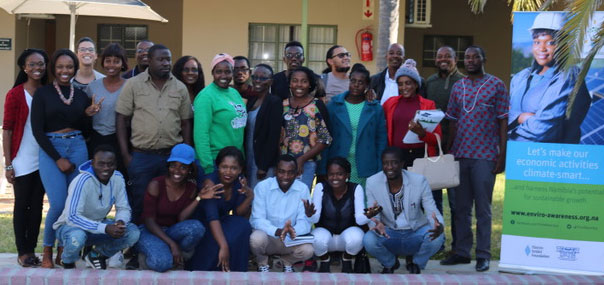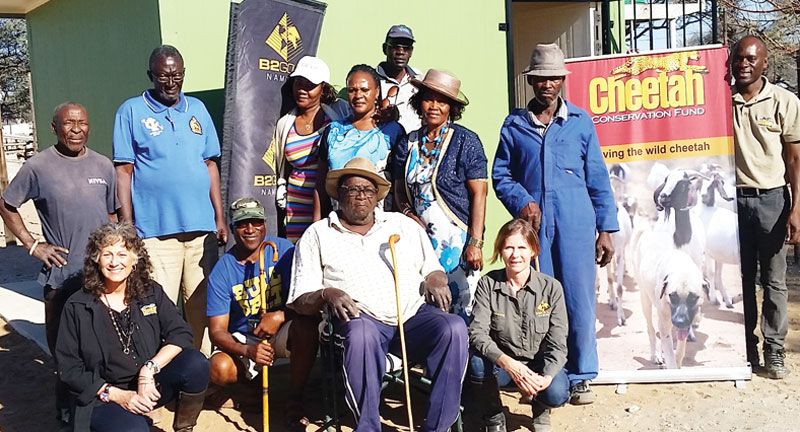
Eco-entrepreneurs strive for better insight

A joint workshop that brought together 26 aspiring eco-entrepreneurs from northern and north-eastern Namibia meet in Oshakati last week as part of the Hanns Seidel Foundation’s (HSF) series of Eco-Entrepreneurship Training and Mentorship Programmes.
The Environmental Awareness and Climate Change Project under the initiative of the HSF and the Namibia Business Innovation Institute (NBII) conducted the fifth and final Eco-Entrepreneurship joint workshop.
The Foundation’s Climate Project Leader, Lesley-Anne van Wyk said that the interactive workshop was designed at enabling business start-ups and small and medium enterprises on the importance of seizing green business opportunities in contributing to the realisation of a national green economy.
Participants were also trained on the fundamentals of entrepreneurship, canvasing funding as well on developing a sound business model.
One of the participants who attended the workshop, Albertina Shilikomwenyo who runs a vegetable garden in the Okaku Constituency close to the town of Ondangwa, said, “the workshop encouraged her to put more diligent effort into her business by adding quality to her product line.”
“The participants as with most of our openly exchanges, share ideas based on their experiences during the five-minute pitch presentation sessions,” said van Wyk, adding that participants emphasised the need for similar information-sharing platforms such as the ones provided by HSF and the NBII as both institutions believe that these platforms can assist in building strong links among entrepreneurs nationwide.
Most of the participants had already been exposed to and engaged in entrepreneurial activities and it did not take long for them to get on the entrepreneurship journey of self-discovery by sharing, participating and listening to others input on how to possibly partner with each other in the future.
“What was interesting about the participants in the Oshakati workshop is that most of the participants are not only empowering themselves by already running businesses, but they are already ploughing back into their respective communities by sharing resources and skills through organised groups,” van Wyk said.
Meanwhile, participants said funding mechanisms constrain the sustainable development of their enterprises and growing a market for their goods and services.
However they stated that entrepreneurial training and business development efforts such as those provided for by the stakeholders were timely and go a long way in engaging already started ventures in alleviating food security, unemployment and ultimately fostering a collective sum of passion for knowledge-sharing and management in their respective communities.











































